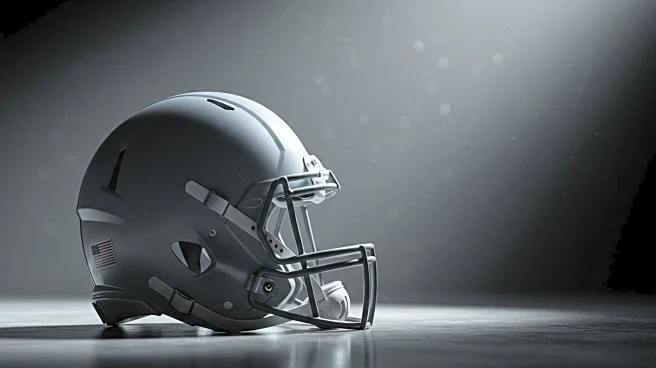What is the story about?
What's Happening?
Detroit Lions safety Morice Norris suffered a head injury during an NFL preseason game against the Atlanta Falcons, leading to the suspension of the game. Norris was hit in the helmet by Falcons running back Nathan Carter, causing him to drop to the turf and appear unconscious. He was taken off the field on a stretcher and transported to Grady Memorial Hospital for observation. Norris later posted on social media that he is 'all good' and expressed gratitude for the support he received. The Lions confirmed that Norris was in stable condition and had movement in all extremities. The incident prompted both teams to gather on the field in a circle to pray, and the game was suspended with the Lions leading 17-10.
Why It's Important?
The incident highlights the inherent risks and physical dangers associated with playing professional football. It serves as a reminder of the importance of player safety protocols and the need for immediate medical response during games. The decision to suspend the game reflects the NFL's commitment to prioritizing player health over competition. This event may lead to increased scrutiny on safety measures and could influence future policies regarding head injuries in sports. The solidarity shown by both teams underscores the camaraderie and mutual respect among players, which can have a positive impact on the sports community.
What's Next?
The Lions and Falcons will likely review their safety protocols and medical response procedures to ensure player safety in future games. The NFL may consider revising its guidelines on handling in-game injuries, particularly head traumas. Both teams will continue their preseason schedules, but the focus will remain on Norris's recovery and the implications of the incident. Fans and stakeholders will be watching closely to see how the league addresses player safety concerns moving forward.
Beyond the Headlines
This incident may spark broader discussions about the long-term health effects of playing football, particularly concerning head injuries. It could lead to increased advocacy for better protective gear and more comprehensive health monitoring for players. The emotional response from players and coaches highlights the ethical considerations of balancing competitive sports with player welfare. The event may also influence cultural perceptions of football as a high-risk sport, potentially affecting youth participation rates.














